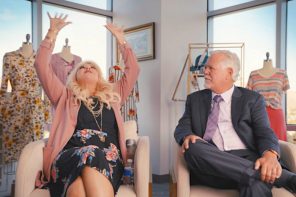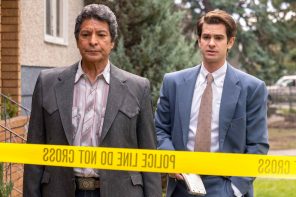Dispatches from the intermountain west show that despite months of careful political positioning by LDS Church officials, immigration issues continue to roil LDS communities.
Mormonism is home to a large and growing number of Latino members in the U.S., many of them undocumented workers; it is also home to some of the most vocal anti-immigrants rights activists in the American West, including Arizona State Senator Russell Pearce, author of Arizona’s infamous SB 1070. In June, LDS Church leaders issued an official statement that attempted to strike a balance between these factions: officials expressed concern for humane treatment of immigrants and their families and caution about the history of mass deportations, especially those where “race, culture, or religion are involved,” while also noting what they called the “destabilizing” effect of unregulated immigration.
“The Church supports an approach where undocumented immigrants are allowed to square themselves with the law and continue to work without this necessarily leading to citizenship,” the statement read, echoing the approach of the Utah Compact, a statement of principles and suite of legislation developed in late 2010 by Utah political and religious leaders, with significant influence from the LDS Church.
The LDS Church also issued an accompanying statement urging members not to judge one another based on immigration status or perceived immigration status and reaffirming the worthiness of undocumented immigrants to hold temple recommends entitling them to participate in sacred temple rites. Holding a temple recommend is perceived by many Mormons as a major barometer of personal “worthiness.” Some LDS anti-immigration activists have vocally opposed the baptism, ordination to the lay priesthood, or temple attendance of undocumented workers on the grounds that they had broken federal immigration laws.
Just days after the Church issued its statement, two Latino members of the LDS lay clergy were deported from Utah. Manuel Antonio Carias-Ordonez, a branch president (equivalent to a pastor) in the town of Hyrum, Utah, beloved community leader, trained physician, and father of seven children, was removed from the state of Utah in chains and returned to his native Guatemala. Former branch president Felix Joaquin Callejas-Hernandez of the town of Draper, Utah, was also deported with his wife and children to El Salvador.
Their story was featured prominently in the Deseret News, the leading newspaper of Mormonism worldwide, along with a statement from LDS Church officials underscoring the Church’s position that comprehensive immigration reform is necessary to uphold religious principles like loving thy neighbor and preserving the integrity of families.
Also last week, Arizona activists successfully concluded an effort to gather more than 8,000 signatures to recall State Senator Russell Pearce. Reportedly, Pearce’s opponents believe that he is vulnerable to challenge, especially if the challenger is a fellow Mormon Republican. Pearce represents the historically Mormon community of Mesa, Arizona.
And just last weekend, a majority of delegates to the overwhelmingly LDS Utah GOP convention voted to repeal HB 116, an element of Utah Compact legislation that created guest worker status for immigrant laborers.
Put it all together—LDS Utah Republicans voting against Church-sponsored immigration reform legislation, while their fellow Mormons are deported from Utah in chains—and you have as clear a picture as any of the challenge the immigration issue is posing to a long-held ideal of unity among Latter-day Saints, especially on issues of public import. The global growth of the LDS Church and its appeal to Latino immigrants in the US will, during the 21st century, change the image of what it means to be Mormon cherished by many conservative Anglo-American multi-generational Mormons. And the Church is doing its best, if haltingly, and with qualifiers—including the phrase in its recent statement suggesting that guest worker status need not “necessarily” lead to citizenship—to negotiate deeply seated nationalist allegiances among its members.
It’s the history of Mormonism and its aspirations to modern peoplehood that give the fight over immigration particular poignancy in the intermountain west. Most Mormons take seriously the belief that we share a special bond with our fellow Mormons, one that should supercede the politics of national origin.
But the same could be said of almost any religion that prioritizes above all else human obligations to one another as children of God.
With political gridlock and inaction block immigration reform in most states and at the federal level, will it be religious leaders who play the decisive role in advancing immigration reform?
The Mormon example says yes.




